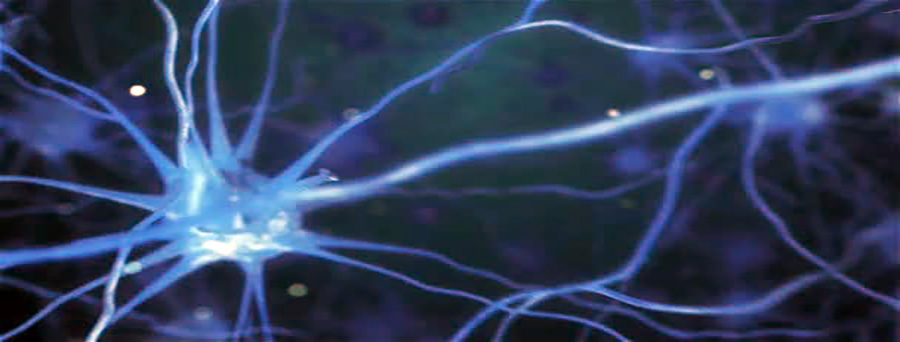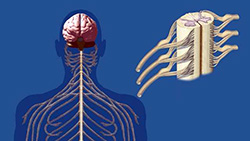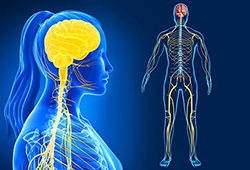Peripheral Nerve Surgery Program of Excellence
 About Peripheral Nerves
About Peripheral Nerves
 Peripheral nerves send messages from the brain and spinal cord to the rest of the body, helping one do things such as sensing cold in the extremities or moving muscles for walking. Made of fibers called axons that are insulated by surrounding tissues,
peripheral nerves are fragile and easily damaged. A nerve injury can affect the brain’s ability to communicate with muscles and organs. Commonly known as peripheral neuropathy, many think there are very few options for people
who have this condition. But it depends on it’s origin and many other factors.
Peripheral nerves send messages from the brain and spinal cord to the rest of the body, helping one do things such as sensing cold in the extremities or moving muscles for walking. Made of fibers called axons that are insulated by surrounding tissues,
peripheral nerves are fragile and easily damaged. A nerve injury can affect the brain’s ability to communicate with muscles and organs. Commonly known as peripheral neuropathy, many think there are very few options for people
who have this condition. But it depends on it’s origin and many other factors.
The neurosurgeons at University of Colorado specialize in the surgical treatment of peripheral nerves, often giving life-changing hope to those who are suffering.
Neurosurgeons Treating Peripheral Nerve Disorders
|
Modalities Offered
- Intraoperative nerve action potential recording
- Nerve graft repair
- Neurotization
Lesions Treated
- Blunt & sharp nerve injuries to all extremities, including brachial plexus
- Brachial plexus traumatic stretch injury- adults and infants
- Nerve sheath tumors – benign & malignant
- Traumatic neuromas
Symptoms
 With a peripheral nerve injury, you may experience symptoms that range from mild to seriously limiting your daily activities. Your symptoms often depend on which nerve fibers are affected:
With a peripheral nerve injury, you may experience symptoms that range from mild to seriously limiting your daily activities. Your symptoms often depend on which nerve fibers are affected:
Motor nerves. These nerves regulate all the muscles under your conscious control, such as walking, talking, and holding objects. Damage to these nerves is typically associated with muscle weakness, painful cramps and uncontrollable muscle twitching.
Sensory nerves. Because these nerves relay information about touch, temperature and pain, you may experience a variety of symptoms. These include numbness or tingling in your hands or feet. You may have trouble sensing pain or changes in temperature, walking, keeping your balance with your eyes closed or fastening buttons.
Autonomic (aw-tu-NOM-ik) nerves. This group of nerves regulates activities that are not controlled consciously, such as breathing, heart and thyroid function, and digesting food. Symptoms may include excessive sweating, changes in blood pressure, the inability to tolerate heat and gastrointestinal symptoms.
You may experience a range of symptoms because many peripheral nerve injuries affect more than one type of nerve fibers.
When to see a doctor
If you experience weakness, tingling, numbness or a total loss of feeling in a limb, see your doctor to determine the cause. It's important to treat peripheral nerve injuries early.
Causes
Peripheral nerves can be damaged in several ways:
- Injury from an accident, a fall or sports can stretch, compress, crush or cut nerves.
- Medical conditions, such as diabetes, Guillain-Barre syndrome and carpal tunnel syndrome.
- Autoimmune diseases including lupus, rheumatoid arthritis and Sjogren's syndrome.
Other causes include narrowing of the arteries, hormonal imbalances and tumors.
To make an appointment
call 720.848.2080
call 720.848.2080
